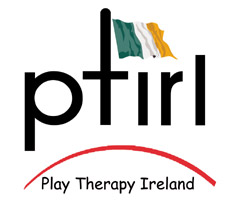Play Therapy Ireland (PTIrl) – is a not for profit organisation dedicated to promoting the use of play and creative arts therapies as ways of enabling children to reach their full potential. We are funded mainly by our membership subscriptions with fees for services provided and secondarily by philanthropic investments. On this page we summarise:
Our History
Who we are for?
Play Therapy Ireland
Our Objectives
Our Constitution and Structure
To maintain our position as the leading professional body, in Ireland, dedicated to promoting the use of play and creative arts therapies (the therapies) as ways of enabling children to reach their full potential by alleviating emotional, behaviour and mental health problems.
PTIrl exists to further the good practice of therapeutic work with children. This includes improving children’s emotional literacy as well as alleviating behaviour and mental health problems. We believe that the use of various forms of recognised therapies to help children fulfil their potential and overcome emotional and behavioural problems has reached a crucial stage in Ireland.
A prime need is to combine, co-ordinate and integrate the valuable skills that all therapists possess for the benefit of all children in need.
Since therapeutic work with children draws its strength from a multi-disciplinary approach, it is vital to be completely open in considering and accepting many different approaches for working with children. Play therapy is a comparatively recent discipline. Because of its relative newness it is important that its evolution is encouraged, that new ideas and methods are considered, tried and evaluated.
PTIrl welcomes into full membership anyone who has satisfactorily completed a recognised course for working therapeutically with children such as drama, art, music, dance and movement – as all these disciplines may be used on their own or as an integrative part of play therapy. They all have an equally valuable contribution to make.
PTIrl is a forum for working together with a respect for each other’s role.
Practitioner Membership is open, at various levels, to ALL those working therapeutically with children AND also to those who have an interest in the subject:
| Therapists | Related Professions | Others |
|
|
Play Workers and anyone who is training to work with children and wishes to acquire play or creative arts therapy skills at sometime. |
To act as a professional organisation for anyone working therapeutically with children in Ireland.
To promote the benefits of therapeutic work with children.
To set standards and provide an ethical framework.
To make training and other resources available for therapeutic work with children by working with training providers, disseminating information and accrediting appropriate courses in creative therapies. PTIrl aims to form links with a number of colleges and other specialised training providers which can offer a variety of Introductory, Certificate, Diploma, Supervisor and Trainer courses up to Post Graduate Level.
To promote and advance discussion, education and research in play therapy, creative arts therapies and child psychotherapy.
Our detailed objectives are set out formally in the Memorandum and Articles of Association.
Play Therapy Ireland’s constitution reflect s the principles of its founding members and those enacted successfully by PTI and PTUK:
- A wide range of therapeutic interventions using play or creative arts therapies can be used to benefit many children. A qualified practitioner requires a range of ‘tools’ including: art, creative visualisations, clay, dance/movement, drama, masks, music, puppets, sandplay and therapeutic storytelling.
- Many practitioners, working in a variety of settings, as well as ‘Play Therapists’ can use these interventions safely and effectively if supported by an appropriate professional infrastructure.
- The infrastructure must include a modern ethical system that embodies clinical governance as well as the provision of ethical guidelines, a professional conduct procedure and a register of certified members.
- PTIrl must provide a lead and meet all of the obligations required of a profession.
- The varied needs of the children, their carers, commissioning organisations and users of the therapies together with the existing skills, aspirations and resources of potential and existing practitioners must be realistically accommodated in setting standards of competence and training. The emphasis must be on what a practitioner can do not merely what a practitioner knows.
- The organisation structure must be sufficiently flexible to enable decisions to be taken quickly, reflect the needs of the public and practitioner members, enable innovation to take place and alter according to growth and changing needs. We do not want to be bogged down by numerous committees or bureaucratic procedures that so often hamper the progress of other professional associations. We believe that the majority of members are content to be consulted on important issues but do not have the time to be closely involved in decision taking. The direction of some professional organisations, with a traditional organisation, can be high-jacked by a small cabal using ‘democratic’ procedures. PTIrl believes that liberty is an even more important principle than democracy in corporate governance.
- PTIrl will work collaboratively with any organisation that aims to benefit children.
The governing documents are the Memorandum and Articles of Association, since the term ‘constitution’ is not a term which is generally used within the Companies Act and is not defined generally by the Act. These two documents together form a ‘constitution’.
The first major play therapy event in Ireland was Play Therapy International’s (PTI) World Congress in 2000 and held at Trinity College, Dublin. The President of Ireland gave an inspiring address to the 200 delegates. A PTI member, Aideen Taylor de Faoite of Galway, devoted a huge amount of energy to the local organisation in making the event a big success and resulted in putting play therapy on the map in Ireland. Audrey Gregan, a very experienced PTI member, was a pioneering Play Therapist in Ireland who urged the adoption of high professional standards and training.
Because play therapy is an emerging profession, it is difficult to establish a fully fledged professional organisation without ‘pump priming’ financial, administrative and practical support. This support offered by PTI and PTUK and was accepted.
PTIrl was inaugurated on 28th April 2003. Its founding members had been working as Play Therapists for a number of years in Ireland having received training accredited by PTI and PTUK and, in the absence of an equivalent organisation in Ireland, were members of these organisations. Because the PTUK model was adopted as the basis for PTIrl and there is a close working relationship between these organisations we give some of this background below. Although this close relationship exists, PTIrl is a totally separate, autonomous organisation registered in Ireland (company number 370347) for the benefit of Irish children and practitioners.
Play Therapy (UK) – The United Kingdom Society for Play and Creative Arts Therapies Limited (known in short as PTUK) was originally set up in October 2000 as Play Therapy UK. It was established as an alternative governing body and professional organisation to provide a choice for practitioners of and anyone interested in using therapeutic play, play therapy or creative arts therapies to help children with emotional literacy, behaviour and mental health problems.
It was felt, by a number of practitioners at that time, that the existing professional association in the UK was too restrictive in its membership criteria, had course accreditation standards that did not meet the needs to produce the large numbers of safe and effective practitioners that are required in the United Kingdom and was insufficiently open or innovative in its policies. Since then PTUK has grown to be the largest organisation in the UK in the field of therapeutic play and play therapy and has a proud record of innovation. This includes the ‘Spectrum of Needs’ and ‘Therapeutic Play Continuum ‘ concepts that recognise that children have a wide range of emotional, behaviour and mental health problems and that professionals with a variety of interventions and skill levels can safely and effectively alleviate these conditions.
A new Ethical System was introduced to provide better protection for both the public and therapists. This incorporates an ethical framework, professional conduct procedure and a clinical governance requirement which places PTUK in the forefront of setting high professional standards. PTIrl has adopted these for use in Ireland until our Members wish to amend it in the light of their experience.
In 2002 PTUK developed the Profession Structure Model (PSM), based on a competency framework, using the experience of a number of international play therapists. This was the first major innovation concerning the organisation of the profession since it started in the UK. It provides a basis for:
- clear communication with commissioners and users of the therapies
- guidance upon the selection and recruitment of therapists
- career planning
- the identification of training and CPD needs
- the design of training courses and programmes
- setting remuneration scales
- job performance appraisal
The PSM is available for use by PTIrl Members.
The international database of play therapy clinical outcomes (SEPACTO) was funded by PTUK and development was started. The first results were published in 2003. This major source of quantitative play therapy research now (March 2006) has data for over 400 cases. PTIrl is contributing data and benefits from the research.
In 2003 PTUK accredited the first MA in Practised Based Play Therapy programme in the UK, designed and run by the Academy of Play and Child Psychotherapy (APAC) and validated by the University College Chichester. This is a modular post graduate play therapy training programme in three parts: Certificate in Therapeutic Play Skills, Diploma in Play Therapy and MA by Dissertation. It has emerged as the most coherent, practice based, post-graduate play therapy training programme in the world. It has the largest number of students currently enrolled with several hundred students from 12 countries. It is unique in measuring the clinical outcomes of its students’ work. Because of the growth in the number of students the academic management of the programme was transferred in January 2006 from the University of Chichester to National University of Ireland. It is now delivered at Marino Conference Centre, Dublin and at present is the only PTI accredited course in Ireland.
In November 2005 PTIrl, with the help and support of PTI, organised the largest play therapy conference to date in Dublin with 220 delegates.
Audrey Gregan the first Chief Executive managed PTIrl from July 2007 to October 2013. It is planned that a new Chief Executive will be appointed by February 2014.
PTIrl’s policy is to work both directly and through PTI with any other professional societies, associations and institutions whose members work with children.
Examples are:
|
PTUK, having worked closely with the Professional Standards Authority http://professionalstandards.org.uk to develop standards and processes for the new Accredited Register programme, had its accredited Register of Play Therapy and Creative Arts Therapists approved in April 2013. This Register includes all Irish Play Therapists and Practitioners in Therapeutic Play Skills who meet the high standards required. http://www.playtherapyregister.org.uk/.
These rigorous standards are used as de facto standards in Ireland to protect the public and assure the quality of practice, until the Irish Government sets its own |

